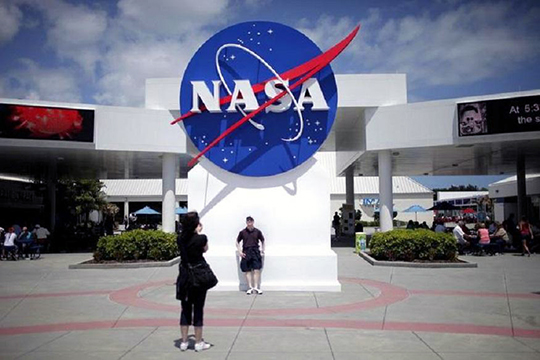New Delhi, Jan 22: India and the US should collaborate more on space research programmes, a prominent scientist from the US space agency NASA stressed here as he felicitated two young Indian astronomers who created history by discovering asteroids in 2010 that are now recognised by the International Astronomical Union (IAU) in the US.

Amanjot Singh and Sahil Wadhwa, former students of Ryan International School in Rohini, were part of the All India Asteroid Search Campaign (AIASC) conducted by New Delhi-based Science Popularisation Association of Communicators and Educators (SPACE) organisation in collaboration with the International Astronomical Search Collaboration, where they discovered the main belt asteroid numbered as 2010 PO24.
“India and the US should collaborate on such research programmes. NASA is looking forward to invite students from across the globe to participate in their space outreach programmes,” Paul Rosen, Project Scientist, NASA-ISRO Synthetic Aperture Radar from NASA Jet Propulsion Laboratory (JPL), said.
Redmi Note 4 Video Review
“What started as an excuse for night-out with friends became a passion. It is this passion that helped me succeed,” added Singh at the annual meet organised by SPACE which is working to make science and astronomy popular among youngsters in India.
In the asteroid search campaign, students from across the country were able to discover nearly 500 new rocks in space. However, these remained preliminary discoveries as they appeared to be asteroids but did not get confirmed because they tend to move away from their orbits. But, when the discovered asteroids remain in their orbits, it is named as a provisional discovery.
“Out of the 37 asteroids discovered (provisional discovery) worldwide in 2016, 27 have been by Indian students,” Sachin Bahmba, Chairman and Managing Director-SPACE Group said.
The annual meet was also addressed by former SPACE achievers who stressed on the need for research platforms and opportunities for children across the country to excel in astronomy and science and technology.
“Curiosity to explore the unknown and an opportunity provided by SPACE led me to the field of astronomy,” Aryan Mishra, a 17-year-old astronomer who discovered an asteroid in 2014, said.
“For children living in a developing country like India, it is not easy to dream about space and the field of astronomy. However, it is my endeavour to change the mindset of people towards this field,” added Mishra.
“Do not end your doubt with nothing. Try to find out as it may lead to a huge discovery one day,” said 17-year-old Yashraj Bhardwaj. Bhardwaj, who along with his twin brother Yuvraj, is the winner of Karamveer Chakra Award. The two have 22 projects — national and international — as well as seven patents to their names.
Through various astronomy-based outreach programmes, SPACE has managed to touch base with more than one lakh families and have educated more than 20,000 students annually, Bahmba informed. “We look forward to fruitful Indo-US ties, which can come up with new technological advancements through researches done by amateurs and the scientific community of both the countries,” he said.





Comments
Add new comment